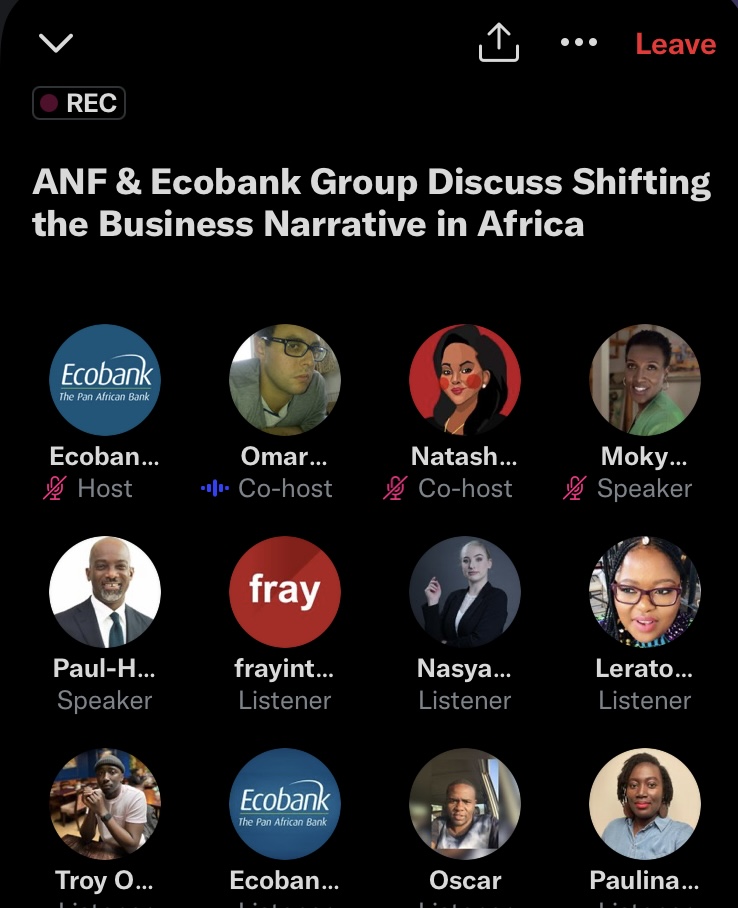The story of African business success appears to be underreported and the continent’s media could improve its coverage of the positives.
This is according to EcoBank Côte d’Ivoire director Paul-Harry Aithnard.

“When you are trying to set up a business and succeed in Africa, you are going against all odds. So from a media perspective, that should be an interesting story to talk about, this is what we need to talk about,” he said.
Speaking at the recent Africa No Filter (ANF) and Ecobank Group Shifting the Business narrative in Africa Twitter Space discussion, business leaders and media experts shared key insights on the current narrative on business in Africa and how it can be shifted.
A recent ANF report into how the African business narrative is covered found that business reportage both by African media and international media is problematic and negative with an overemphasis on the role of governments, foreign powers, and larger African states.
The role of young people, women, entrepreneurs, creative businesses, smaller successful African states and Africa’s future potential were underrepresented in the media.
Lead researcher of The Business in Africa Narrative Report Natasha Kimani said Africa has some of the highest numbers of women business owners globally, yet business news on gender equality has declined while government, policy, and regulations dominate reportage on business.
“54% of business news in 2021 was framed through government action and policies. African media focused more on themes related to government than on those related to entrepreneurship,” she said.
Yet, African countries make up six of the top 10 countries whose populations were most likely to search for the topic of entrepreneurship in 2021.
ANF director Moky Makura said it’s the bigger global brands that make it onto the front page because global media control the news and the business narrative.
“When Twitter launched their office in Ghana, that made global news. Yet Accra has 500 tech companies that are already operating there whose stories don’t make it to the agenda or mainstream media,” she said.
“As Africans, we need to tell our own stories because we’re being erased from our own continent.”
Aithnard said that industries like Nollywood are proof of the sustainability of African business.
“The movie industry and entertainment industries, those are businesses and those businesses have succeeded. Today Nollywood is today the second-largest film industry in the world so, Nollywood is a blueprint and is also a confirmation that you can make business in Africa and make it a success,” Aithnard said.
According to Business Day Nigeria, the Nigerian movie industry is the second-largest film sector globally with a projected worth of $6.4 billion in 2021, and the continent’s largest in terms of value, number of annual films, revenue and popularity. Nigeria produces around 2,500 films annually.
Makura explained that academic research has shown a correlation between media representations and investment levels.
“A study of the stock market in the US showed that media visibility led to more investment than under-investment and influenced investor trading behaviour. So, how the media covers business really matters.
“With a continent with 70% of its population under 35 you’ve got to have more stories with what young people are doing. It’s not always big multinational companies that we need to hear about, it’s the young entrepreneurial business,” she said.

